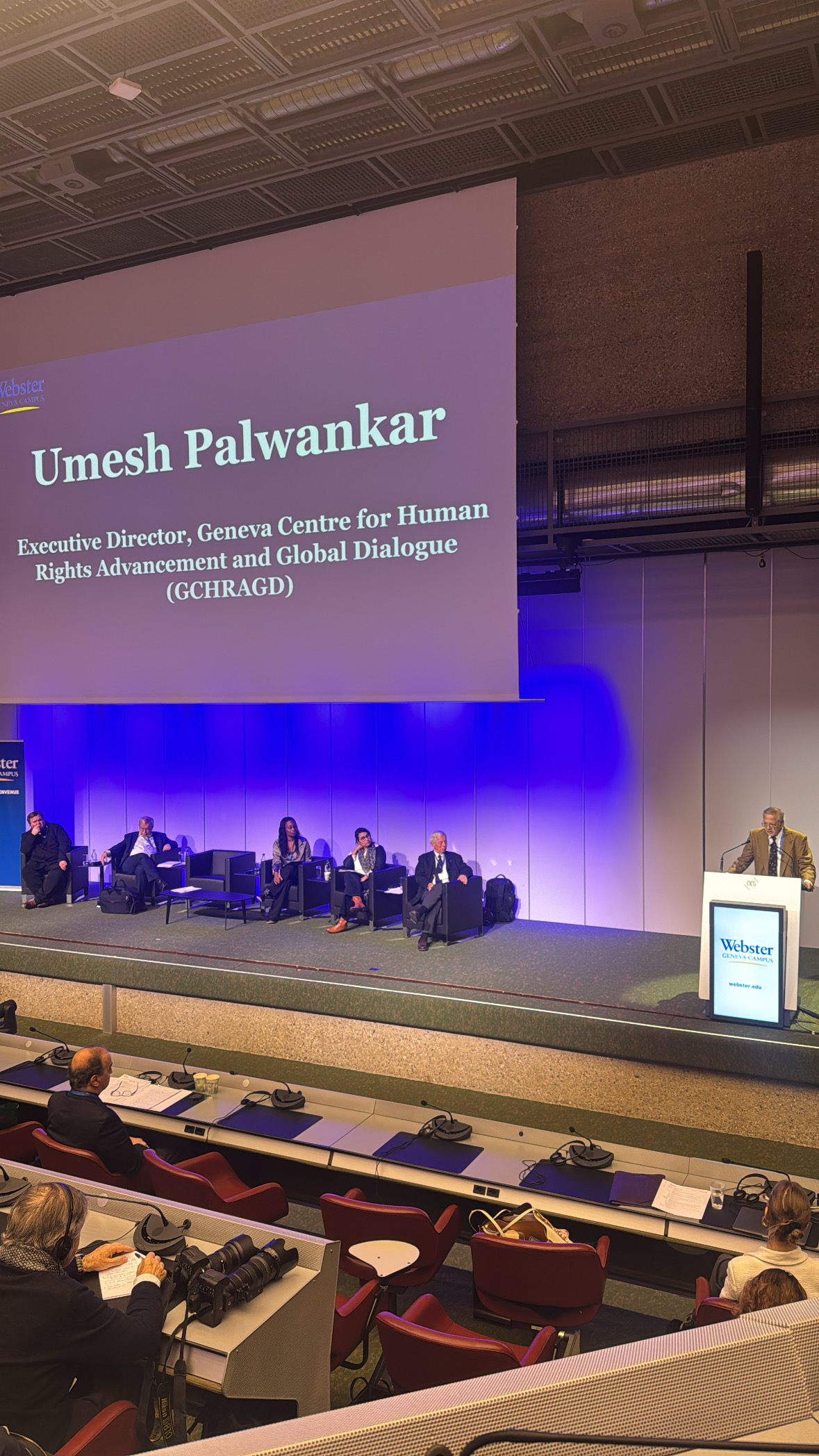Geneva Centre’s Executive Director Dr Umesh Palwankar Highlights Key Issues at Webster’s 29th International Humanitarian Conference
 21 November – Geneva. Webster University successfully hosted its 29th Annual International Humanitarian and Security Conference (IHSC) on 21 November 2024, at the International Conference Centre Geneva (CICG). This year’s conference theme was “The Resurgence of Conflicts: Challenges to Existing Security, Humanitarian and Human Rights Frameworks”. Several prominent high-level speakers opened the two panel discussions in the morning and the two panel discussions in the afternoon, including Ms Nena Stoiljkovic, Under Secretary General for Global Relations, Humanitarian Diplomacy and Digitalization, International Federation of Red Cross and Red Crescent Societies (IFRC), Ms Elizabeth Tan, Director of the Division of International Protection (DIP), United Nations High Commissioner for Refugees (UNHCR), Ms Micheline Calmy-Rey, Invited Professor at the Global Studies Institute, University of Geneva, former members of the Swiss Federal Council, former Swiss President, former Head of the Federal Department of Foreign Affairs, Ms Rose Gottemoeller, Distinguished Lecturer at Stanford University, former Deputy Secretary-General of NATO, former US Undersecretary for Arms Control and International Security, and Mr. Ryan V. Guffey, Director-General, Office of Global Campuses, Webster University.
21 November – Geneva. Webster University successfully hosted its 29th Annual International Humanitarian and Security Conference (IHSC) on 21 November 2024, at the International Conference Centre Geneva (CICG). This year’s conference theme was “The Resurgence of Conflicts: Challenges to Existing Security, Humanitarian and Human Rights Frameworks”. Several prominent high-level speakers opened the two panel discussions in the morning and the two panel discussions in the afternoon, including Ms Nena Stoiljkovic, Under Secretary General for Global Relations, Humanitarian Diplomacy and Digitalization, International Federation of Red Cross and Red Crescent Societies (IFRC), Ms Elizabeth Tan, Director of the Division of International Protection (DIP), United Nations High Commissioner for Refugees (UNHCR), Ms Micheline Calmy-Rey, Invited Professor at the Global Studies Institute, University of Geneva, former members of the Swiss Federal Council, former Swiss President, former Head of the Federal Department of Foreign Affairs, Ms Rose Gottemoeller, Distinguished Lecturer at Stanford University, former Deputy Secretary-General of NATO, former US Undersecretary for Arms Control and International Security, and Mr. Ryan V. Guffey, Director-General, Office of Global Campuses, Webster University.
The Geneva Centre was honoured to have been invited as panellist in the conference for the second consecutive year. Dr Umesh Palwankar, the Centre’s Executive Director, delivered an engaging presentation, in the session entitled “75 Years On: Have the Geneva Conventions Failed to Protect Civilians and the Victims of War?”. In his presentation, he focused on measures to enable States to ensure respect for international humanitarian law by other States, in the sense of restoring respect for this law by States which are violating it. In this vein, Dr Palwankar mentioned measures to exert diplomatic pressure, unilateral coercive measures, as well as possible measures of retortion and unarmed reprisals to exert economic pressure. He concluded by analysing the role of United Nations and other regionals agencies in promoting respect for human rights and international humanitarian laws. Such actions may take the form either of support for organizations involved in humanitarian assistance or of practical action to facilitate such assistance.
The partnership between the Geneva Centre and Webster University extends beyond the collaboration in the Annual International Humanitarian and Security Conference. This collaboration encompasses various initiatives, including the annual summer joint training course on “Human Rights and Global Governance” and a joint internship program. These collaborative efforts underscore a shared commitment to advancing human rights education and fostering a deeper understanding of global governance issues.